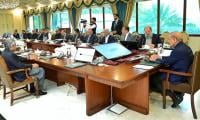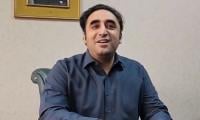ISLAMABAD: Federal Minister for Finance Shaukat Tarin Saturday announced the withdrawal of Rs100 billion taxes on mobile call, SMS and internet usage, saying the prime minister had rejected those tax proposals.
However, Tarin did not explain how this gap would be filled after withdrawal of Rs100 billion taxes announced in the Finance Bill 2021-22.
Addressing the post-budget press conference here, he said the government had no option but to hike the petroleum levy to Rs25 to Rs30 per liter for collecting over Rs600 billion in the next budget.
He said Saudi Arabia had agreed to provide oil to Pakistan on deferred payment but its exact quantity and conditions had not been worked out yet.
“We expect that the lifting of sanctions on Iran will lower the POL prices on the international market so the benefit [of reduced prices] will help Islamabad to collect levy amounts,” Tarin said.
After the post-budget briefing, when this reporter asked Chairman FBR Asim Ahmed how the gap will be filled after withdrawal of Rs100 billion, he said they will have to fill the gap through the enforcement measures.
When asked about IMF’s budget support envisaged in budget documents and petroleum levy of Rs610 billion amid the oil prices already touching $71 per barrel, the minister replied that negotiations with the IMF were underway and hoped that things would be finalized till the completion of sixth review probably in September. He said the IMF had suggested 100 percent increase in the personal Income Tax and 46 percent hike in the power tariff but the government refused to accept these demands.
He said the government wanted to solve these two problems by adopting its own strategy.
Terming the budget 2021-22 pro-growth, the minister ruled out the possibility of any mini-budget and said the country required higher growth on sustained basis but failed to achieve it mainly because of historic failure to generate the desired tax revenues.
Now, he said, there was a need to jack up tax to GDP ratio to 20 percent over the next seven years which was stagnant at around 11 percent of both the FBR and the provinces.
He termed the FBR’s envisaged target of Rs5.829 trillion a challenging task and said the FBR could go up to adding Rs550 billion with the help of nominal growth of 13 percent and the remaining Rs500 billion will have to be collected by the tax machinery for achieving the desired target in the next fiscal year. The government took base collection figure of Rs4.7 trillion for outgoing fiscal year.
Tarin repeated Prime Minister Imran Khan’s term of ‘Ghabrana Naheen’.
He said the FBR planned to collect Rs264 billion net taxes through policy measures and Rs240 billion in shape of enforcement actions.
He said the FBR possessed all kinds of data in shape of utility bills, banks details and other expenditure list as broadening of tax base brought 312,000 people into the tax list and was expecting to generate Rs20 to 30 billion.
The tax base will be broadened to bring in one million new taxpayers and hence the FBR was aiming to collect Rs75 to Rs100 billion.
The Point of Sale (POS), he said would be integrated from 10,000 to 85,000 and then half a million over next two years. The sale of retail stores stood at Rs200 to Rs300 billion out of existing 10,000 connected with POS but after capturing sale of Rs1 trillion to Rs1.5 trillion. Out of this mega sale of Rs1,000 billion to Rs1,500 billion, the FBR would be able to install POS at the retail stores.
The government announced prize scheme on the basis of balloting and the FBR would provide balloting based gifts of Rs1 billion every month.
Such schemes proved successful in Turkey and other parts of the world. Now the customers would force retailers connected with POS to get bar code receipts on the basis of which balloting would be done to provide gifts.
He said the FBR’s envisaged target of Rs5.8 trillion was realistically aggressive.
To another query, he said the government had requested the IMF for granting six months extension to the construction amnesty scheme that would expire on June 30, 2021.
He assured that the inflationary pressures would remain below the double digit adding that the country required productivity to overcome the rising prices of food.
Tarin said the government had provided all subsidy amount to the power sector but they will have to improve efficiency and bill recovery.
To another query, he said the government did not hesitate to accept challenges and the Pay and Pension Commission would be assigned to come up with a comprehensive approach in order to differentiate among performers and non-performers.
“There is increased political interference but the government will place a system under which salaries were automatically adjusted on the higher side. We want to make public sector as employer of choice,” he said.
He said the number of Utility Stores Corporation (USC) would be doubled adding that pension had become a major problem and the Pay and Pension Commission would come up with some sort of solution.
Replied to a question, the chairman FBR said they had collected Rs160 billion through enforcement measures in the outgoing fiscal year.
Speaking on the occasion, Advisor to the PM on Commerce Abdul Razak Dawood said export of goods and services would be increased from $30 billion to $35 billion in the next fiscal year.
He said the government will focus on traditional and nontraditional areas to boost exports. He said the government will facilitate the textile sector and in traditional area it will give a push to engineering, pharmaceutical, IT, food processing and others.
Minister for Industries Khusro Bakhtiar said the government provided incentives to the export-oriented industries as tariff incentives on electricity and gas would continue.
He said the government provided incentives to auto sector as unutilized capacity of 800cc cars could be increased.
The new auto policy is under consideration as new entrants will be allowed to come into this sector.
He said the government had allocated development funds for establishment of an industrial zone in Karachi, as 1,500 acres of land had been procured and made part of PSDP for the next budget.
Saad was of the view that the battle of politics should be fought solely through political means
KP govt decided to develop gemstone business as a formal export sector and cluster at the Namak Mandi would be...
Khyber Pakhtunkhwa Minister for Higher Education, Archives, and Libraries, Meena Khan Afridi. — APP FilePESHAWAR:...
Vehicles and horse carts passing through flood water at Bara Bazar area on Khuwani bridge after heavy rain in Peshawar...
Amid the failure to revive the cash-bleeding PIA, government is left with no other option but to sell it to any...
Picture showing the Silver Jubilee Gate of the University of Karachi. — APP File KARACHI: The University of Karachi...







